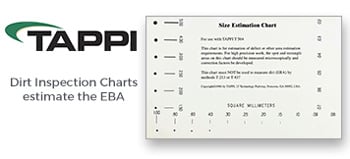Quit tolerating crybabies!, Solutions! Online Exclusives, June 2003
Quit Tolerating Crybabies!
By Michael Mercer, Ph.D.
Children aren’t the only ones who throw tantrums. Here is some simple and
effective advice to help you rid your company of the complaining, blaming crybabies
that drag down productivity and employee effectiveness.
I’ll bet you have some employees, colleagues, family or friends who are crybabies.
In our book Spontaneous Optimism®, my coauthor and I define a pessimist
as someone who loves to do three things:
- Complain
- Blame
- Moan
These people are “loser magnets” because they magnetically attract other pessimists
and crybabies who love to complain, blame, and moan. In fact, they are “emotional
vampires” who cherish every opportunity you give them to suck the good feelings
right out of your skull.
Adult Tantrums
If you think about it, an adult who wallows in complaining, blaming and moaning
is, in reality, throwing the adult version of a child’s temper tantrum. An upset
child will cry and kick and scream. Well, adults cannot perform such “childish”
actions. So, they do the more pseudo-intelligent thing: They
- love to list anything that goes wrong (complain)
- point fingers at how someone else goofed up (blame)
- wallow in the emotional mud for as long as anyone listens (moan)
Recommendation: The next time you see an adult acting bent out of
shape, pause for a moment. Realize you are witnessing the adult version of a
child’s tantrum.
If you ever lapse into considering whether to tolerate an employee’s whining,
complaining, blaming and moaning, you absolutely must remember these four points:
- This is not a game.
- You are not playing house.
- You are not operating a counseling center.
- You are running a business. That requires you to focus on your mission to
improve profits and productivity.
Interesting (but useless) research
Interesting research: Salvidore Maddi, Ph.D., professor at U. of California
– Irvine, studied 450 executives to find out how they handled various “stresses”
on the job. He found that about two-thirds handled stress poorly, and one-third
handled it well. A large percentage of the people who handled work-related stress
well had this in common: As children, they experienced extremely “disruptive
stresses early in life,” typically in their family life.
Useless aspect of this research: It is illegal—and unprofessional—to
ask job applicants about non-work activities. As such, you should not ask an
applicant if s/he experienced “disruptive stresses early in life.” You are not
even supposed to ask about an applicant’s family experiences. That would be
a non-work-related question. (Note: Even if you did ask, it is doubtful the
applicant would tell you about sticky childhood or family experiences, anyway!)
Of course, you still want to hire people who handle well the roadblocks they
encounter on the job. These roadblocks include failure, rejection, not making
a sale, not achieving a goal, or someone giving the employee a hard time.
How to hire hardy, resilient employees
When resilient people encounter work difficulties, they readily pick themselves
up, figure out how to do better next time, and move on. In many of my books
and speeches, I emphasize that the main difference between a winner and a loser
is that a winner picks himself up exactly one more time than a loser. Yet, since
you cannot ask non-work-related questions in a job interview, what can you do
to hire applicants who are resilient? How can you spot an applicant who will
“pick himself up exactly one more time?”
There are pre-employment tests that can help. For example, the Behavior Forecaster™
test we use has two scales that help predict which applicants handle obstacles
well. One measures subjective reactions vs. objective reactions, the other measures
an applicant’s pessimism vs. optimism.
On the first scale, (subjective/objective reactions), someone who scores low
(that is, as being more subjective) tends to be a person who gets upset, bent
out of shape, acts like a crybaby, or throws the adult version of a tantrum
when things do not go the way they like. In contrast, someone who scores high
on this scale (that is, appears more objective) tends to take difficulties in
stride, figure out solutions, and move ahead in a mature, adult-like manner.
On the optimism scale, people who score low (pessimistic) love to complain,
blame, and moan. In contrast, applicants who score high on this scale (more
optimistic) prove to be confident, self-responsible, “can-do” people who thrive
on figuring out solutions to problems they encounter.
If you hire an applicant whose scores indicate that they are both highly objective
and highly optimistic, you will have hired a mature, adult-like employee who
exhibits resiliency and hardiness despite roadblocks.
Interestingly, when we conduct “benchmarking studies” to identify the test scores
of “superstar” employees, we quite often find that the top performers at many
jobs in many companies score high for both Objective Reactions and Optimism.
How can you improve your own resiliency?
If you feel upset or “bent out of shape” when you encounter roadblocks—or when
someone gives you a hard time—here is what you can do to handle it successfully.
First, focus on the facts. Some workers tend to focus on feelings,
emotions and personal topics (for instance, like a social worker) while others
focus on facts and nitty-gritty details (for example, an accountant or engineer).
Problem: Imagine the last time you got upset and threw an “adult tantrum.” Most
likely, you let yourself flounder in a “feeling-focused” mode.
Solution: To handle a crisis or difficulty in a mature, down-to-earth, pragmatic
manner, you need to switch your brain to a fact-focused mode. After listing
the facts, you need to conjure up solutions. By focusing on the facts of the
bothersome situation, you can succeed in figuring out how to handle the problem,
pick yourself up, and implement your solution.
Second, don’t play victim. Remember: People only can step on you
if you keep lying under their feet! So, if you have allowed someone to
play the monster role while you play the victim role, do what an optimistic
person does: Take personal responsibility for solving your predicament, rather
than just complaining, blaming and moaning about the monster. And—most importantly—stand
up for yourself.
You can transform crybabies into adults
I can read your minds! I know some of you are saying, “Well, I handle obstacles
objectively and optimistically, with a fact-focused attention to analyzing and
solving the problem. But what do I do about people around me who are pessimistic
crybabies?”
Here is exactly what you need to do. The next time that crybaby strolls into
your office and starts complaining, blaming and moaning about something, nicely
say to the person: “I realize that bothers you. Now, please tell me what the
possible solution is.”
The pessimistic crybaby most likely will respond by saying, “I don’t know!”
Then, you look the person in the eye as you nicely but firmly ask, “Well, if
you did know the solution, what would it be?”
In other words, you are teaching the crybaby to do exactly what optimistic,
objective adults do: Focus on solutions, not on problems. Superstars in all
walks of life invest the huge majority of their time focusing on solutions,
not on problems.
In fact, you may be the first human being who ever showed the pessimistic, upset
crybaby how to handle roadblocks and difficulties like an objective, optimistic
adult.
Note: You will not transform them by doing this only once. I find I need to
do this 10 or more times with a crybaby before the person finally learns—at
least in my presence—to focus on solutions, not on complaining, blaming and
moaning about problems.
In the long run, you help the crybaby transform into an adult. Plus, you also
help your company and yourself by transforming one more employee into a more
optimistic, “can-do,” confident person.
Michael Mercer, Ph.D., is a testing expert, conference speaker, and founder
of The Mercer Group, Inc. in Barrington, Illinois, USA. Dr. Mercer developed
the widely used “Abilities & Behavior Forecaster™” Tests. He
authored five books, including “Hire the Best -- & Avoid the Rest™.”
You can subscribe to Dr. Mercer’s free E-Newsletter at www.drmercer.com. You
can contact him at (847) 382-0690.
© Copyright 2003 Michael Mercer, Ph.D.





